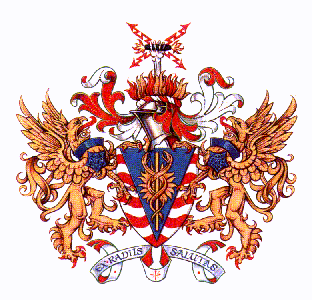
Royal College of Radiologists
Encyclopedia

Oncology
Oncology is a branch of medicine that deals with cancer...
and clinical radiology
Radiation oncologist
A radiation oncologist is a doctor who specializes in the treatment of cancer patients, using radiation therapy as the main modality of treatment. Radiation can be given as a curative modality, either alone or in combination with surgery and/or chemotherapy. It may also be used palliatively, to...
throughout the United Kingdom
United Kingdom
The United Kingdom of Great Britain and Northern IrelandIn the United Kingdom and Dependencies, other languages have been officially recognised as legitimate autochthonous languages under the European Charter for Regional or Minority Languages...
. Its role is to advance the science and practice of radiology and oncology, further public education and set appropriate professional standards of practice. The College also sets and monitors the educational curriculum for those training to enter the profession. It is a registered charity in the United Kingdom (no. 211540).
The College publishes two journals, the Clinical Oncology Journal and the Clinical Radiology Journal, as well as awarding various prizes and scholarships.
History
A series of bodies has represented practitioners of radiological medicine in the UK, starting in 1897 with the foundation of the Roentgen Society (named for the physicistPhysicist
A physicist is a scientist who studies or practices physics. Physicists study a wide range of physical phenomena in many branches of physics spanning all length scales: from sub-atomic particles of which all ordinary matter is made to the behavior of the material Universe as a whole...
Wilhelm Conrad Röntgen
Wilhelm Conrad Röntgen
Wilhelm Conrad Röntgen was a German physicist, who, on 8 November 1895, produced and detected electromagnetic radiation in a wavelength range today known as X-rays or Röntgen rays, an achievement that earned him the first Nobel Prize in Physics in 1901....
). Subsequently founded societies included the British Association of Radiologists (1934), the Society of Radiotherapists of Great Britain and Northern Ireland (1935) and the Faculty of Radiologists (1939).
In 1950 the first issue of the Clinical Radiology Journal was published by the Faculty of Radiologists, who were then granted a Royal Charter
Royal Charter
A royal charter is a formal document issued by a monarch as letters patent, granting a right or power to an individual or a body corporate. They were, and are still, used to establish significant organizations such as cities or universities. Charters should be distinguished from warrants and...
of incorporation in 1953. A supplemental charter was given in 1975 to rename the Faculty as The Royal College of Radiologists. The College then published the first issue of the Clinical Oncology Journal in September 1989.
Fellows of the Royal College of Radiologists (FRCR)
Almost all consultant radiologists and clinical oncologists practising in the UK are Fellows of the Royal College of Radiologists through a competitive series of exams taken during higher specialist training. Fellows who have passed the exam and who are in good standing with the College are entitled to put FRCR after their name.There are also a small number of Honorary Fellows.
External links
- Royal College of Radiologists official website
- Academic Clinical Oncology & Radiobiology Research Network An NCRI initiative to revitalise radiotherapy research in the UK. Website has an active community of RCR radiologists working on research projects and also has details of training courses and opportunities for radiologists.

